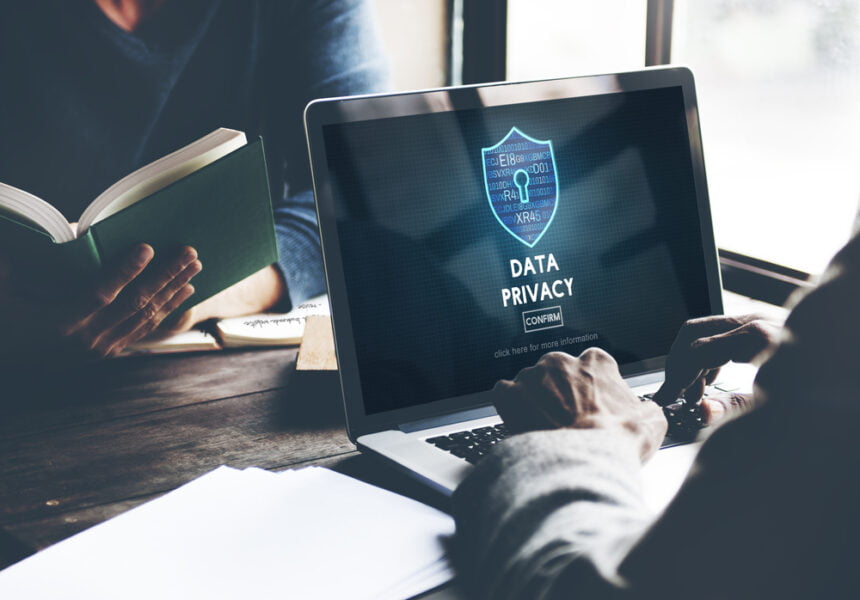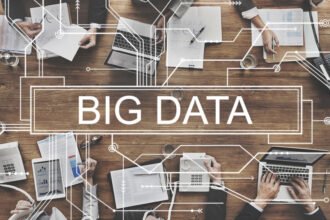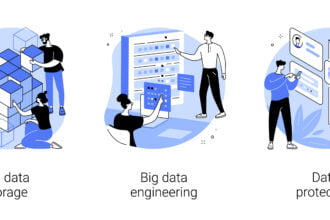The right to privacy is widely regarded as a fundamental human right. A growing number of people are expressing concerns about their desire to have privacy protected. One poll found that 93% of Americans would switch to a new brand that protected their privacy better.
But if that’s so, why does it seem increasingly unattainable in the modern age?
To gain an understanding of this dilemma, we must first distinguish between privacy as it’s traditionally defined and the more recent, controversial “data privacy.”
Prior to the internet, privacy was something more tangible and therefore easier to regulate and protect. But as life became more digitized, it also became easier to track and quantify every aspect of it. This is why data privacy is so important.
For example, when you’re reading a physical newspaper or a magazine, it’s impossible for the media company that owns the newspaper or magazine to monitor which pages you spent the most time reading and what type of articles you prefer. However, this can be easily tracked when you’re reading a digital version.
We’re told that this kind of information will be used to optimize internal operations and give us better recommendations, AI-driven targeted advertisements and a better user experience , but the tech industry’s tendency to treat us like data entry point has more to do with a certain level of veneration for algorithmic decision-making than with user experience.
The current digital economy runs on our data, and allowing these companies to collect it and process it for their benefit seems to be the cost of entry. It may be framed as win-win – we get free access and a superior, personalized user experience while the companies gain valuable insight – but that’s not how it usually goes.
Companies like Google and Facebook soared to new heights due to the data we provided in exchange for “free” digital products, while their personalization algorithms started to shape our thoughts, feelings, tastes, political opinions, and even democracies.
Following a string of high-profile scandals surrounding Big Tech and digital privacy, we’ve become more mindful of how these companies collect and use our data.
Facebook was recently banned from processing user data from WhatsApp in Germany. Hamburg data protection commissioner Johannes Caspar issued an emergency order prohibiting Facebook from processing this data for three months, citing a privacy policy update that violates European data protection laws.
Caspar referenced the Cambridge Analytica fiasco and the data leak that affected over 500 million Facebook users to highlight the risks of mass profiling and how it can be used to influence political decisions.
He said the order’s purpose is to protect the rights of WhatsApp users in Germany and advised EU regulators to enforce a similar ban across all 27 member states.
In 2016, the European Union adopted the GDPR – General Data Protection Regulation – which sets the standards for personal data protection. The GDPR was necessary precisely because of technological advancements. The current guidelines are more in line with today’s digital world, empowering people to protect their personal information and privacy online.
Personal information is defined as any information that can be used to directly or indirectly identify a person, including names, email addresses, photographs, banking information, IP addresses, cookies, social media posts, etc.
Because privacy and data protection are regarded as fundamental rights in the European Union Charter and because this information can be used against people, through the GDPR, the EU is demanding more transparency and accountability from companies like Facebook that collect it and process it.
Individuals and organizations that collect personal data from people also become responsible for what happens to the data, so if there’s a breach like the ones involving British Airways and Marriott International, the people affected by the breach need to be notified, and they also have the right to compensation for any resulting damages. You can read more detailed information on this topic by visiting Compensation Calculator.
Data Privacy for Those Who Can Afford It
Most people don’t realize just how much data is being collected whenever we interact with a digital platform. What’s ironic is that very few of the businesses collecting our data actually have the expertise to use it to our benefit, but it’s still valuable for them because it helps them stay ahead of their competitors. For instance, Facebook’s decision to buy WhatsApp in 2014 was based on data collected via the Onavo VPN.
We, the consumers, don’t gain much from this massive data collection and profiling. We’re asked for consent, of course, but the privacy policies we’re asked to consent to are often written in legal jargon, so it probably won’t surprise anyone to hear that most people have no idea what they’re consenting to.
Johannes Caspar, the German data protection commissioner we mentioned earlier in this article, even argued that one of the issues with the new privacy policy WhatsApp is asking its users to consent to is that it’s unclear, misleading and contains significant inconsistencies.
What’s more, this “win-win” exchange often results in poor user experience. We all know what it’s like to be bombarded with ads for products we’ve already purchases and inaccurate recommendations.
At what point did privacy stop being a right and became a privilege for those who can afford it? If you don’t want to pay for digital services with your data, you either have to stop using them or pay for your privacy available in the premium versions.
Privacy isn’t cheap, and with some services, it’s not realistic to opt out of using them because it would be the equivalent of opting out of being a part of society. We already pay for internet, but if we want our internet service provider to stop tracking our online activity, we have to pay extra. And internet is one of those things that you could theoretically opt out of using, but realistically speaking, how would that work?
Similarly, we pay for a Netflix subscription, so the streaming giant is not dependent on ad revenue, but it still collects our data to gain an advantage over its competitors. And so do its competitors.
Companies like Google and Facebook, on the other hand, implement a business model that’s based on collecting and processing data from its users. They do offer good quality services in return, but at the end of the day, they’re the ones that benefit most from this deal.
And what if you can’t afford a premium internet subscription, an iPhone, VPN, private email account and cloud encryption services? Does that mean that Big Tech has turned privacy into yet another privilege for the wealthy?










